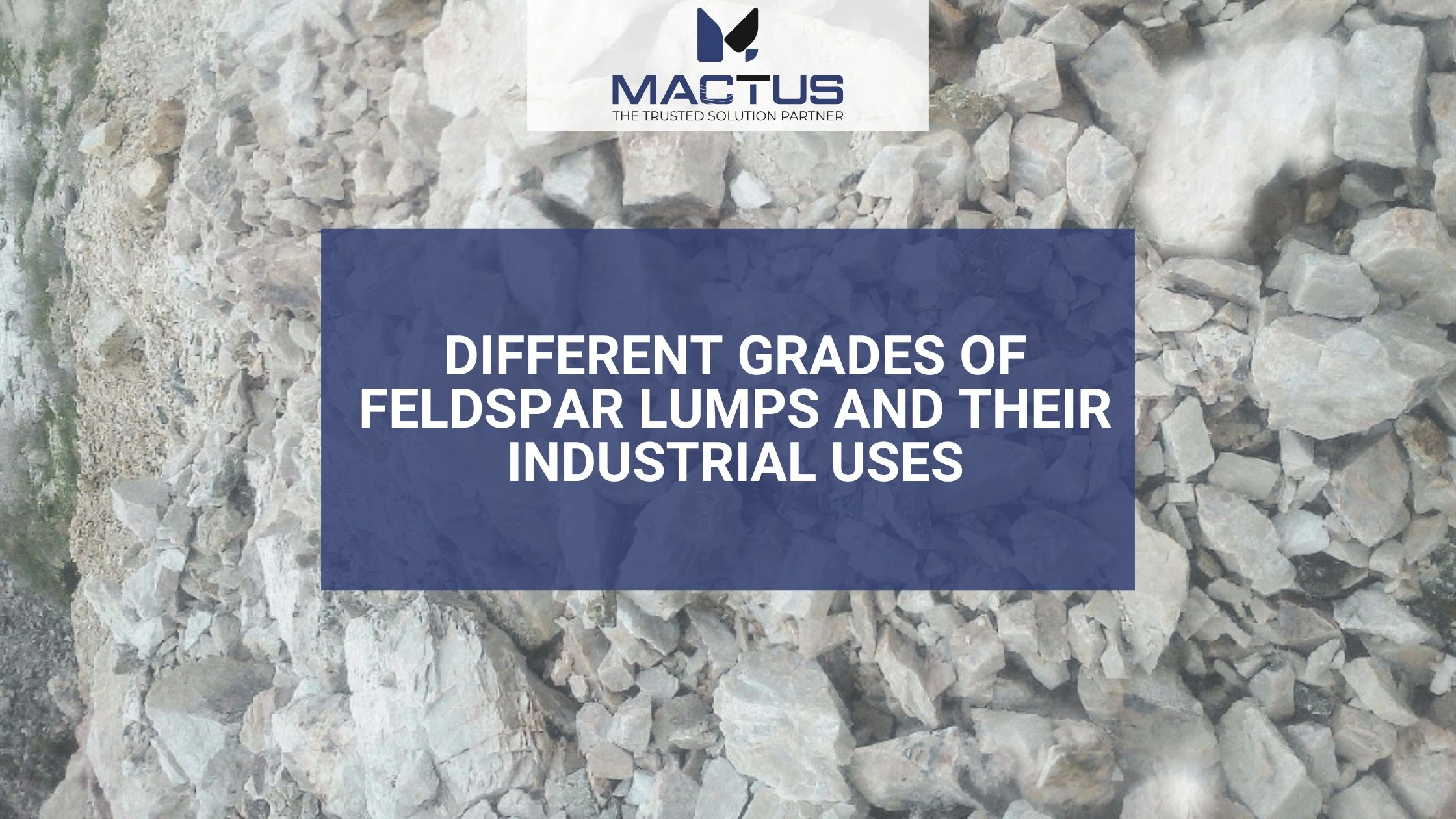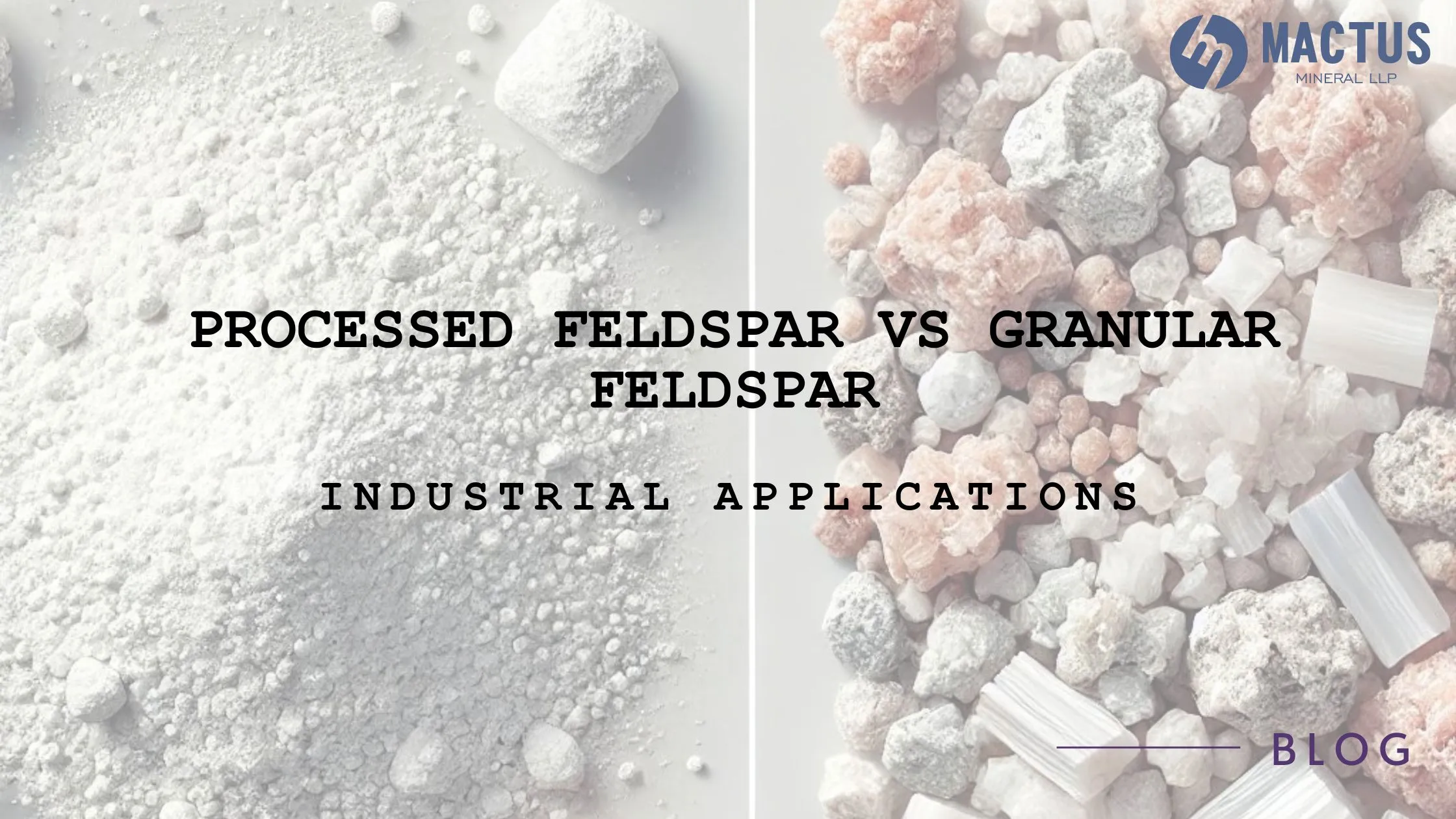

Connect With Our Team

You know that feeling when you're staring at those little specks in your countertop? Those are feldspar, one of the most abundant minerals on Earth. But not all feldspar is created equal. Turns out there are two main types used in industry: processed and granular. What's the difference, you ask?
Well in this article, we'll break down the pros and cons so you can decide which type of feldspar is right for your next project. We'll look at factors like cost, availability, chemical composition and physical properties. We'll also overview some key industrial applications like glassmaking, ceramics and fillers. So whether you're a manufacturer, engineer or just a geology enthusiast, read on to become a feldspar expert!
You've definitely encountered feldspar before, even if you didn't realize it. Feldspar is an extremely common group of rock-forming minerals that make up a huge part of the Earth's crust. In fact, feldspar minerals account for nearly 60% of the outermost 16 km of the crust!
These minerals are found in abundance in igneous, metamorphic and sedimentary rocks all over the world. With such widespread availability, it's no surprise that feldspar has been used for centuries in industrial and manufacturing applications.
But how exactly is this versatile raw material processed for commercial use? Well, it starts with mining the feldspar from quarries and other mineral deposits. The extracted rocks then go through several processing steps:
The result is high-quality feldspar products tailored for different industrial needs. Granular or ground feldspars are available in various mesh sizes for uses like ceramic glazes and glass manufacturing. Finer feldspar powders are ideal for filler applications in plastics, paints and rubber.
So in summary, feldspar is a widely available and multipurpose mineral that undergoes mining and processing to transform it from raw rocks into specialized industrial materials. Its abundance and versatility make feldspar an important resource for modern manufacturing across many sectors.
Let's break it down - processed feldspar and granular feldspar are two distinct products with their own unique properties. Processed feldspar goes through additional refinement steps like grinding, sizing, and purification to create a more uniform particle size and higher purity level. On the other hand, granular feldspar is the raw, crushed mineral with a wider particle size distribution straight from the mines.
The key is understanding their intended applications. Processed feldspar's consistent quality makes it ideal for specialized industrial uses like ceramics, glass, fillers and extenders. Its purity enhances properties like whiteness, hardness and thermal resistance. Granular feldspar finds use in more general applications like abrasives, cement and concrete production where particle size isn't as critical.
Another factor is cost - processed feldspar commands a premium due to the additional processing involved. Granular feldspar is more economical for high-volume, cost-sensitive applications. Availability can also play a role - processed grades may have longer lead times, while granular products are more readily available.
At the end of the day, it comes down to your specific requirements. If you need tighter particle size control, higher purity, and enhanced functional properties - processed feldspar is likely the way to go. For general mineral filler or construction applications where cost is paramount, granular feldspar could be the better fit. Weighing your performance needs against budget realities will help determine the ideal feldspar product.
You might be surprised to learn just how versatile feldspar is in industrial applications. This group of rock-forming minerals has been used for centuries in manufacturing everything from ceramics and glass to fillers and abrasives.
Feldspar comes in many different mineral forms with slightly varying chemical compositions. But they all share some very useful properties - hardness, resistance to heat and chemicals, and a bright white color when crushed into powder.
One of the biggest uses of feldspar is in ceramics manufacturing. Its heat resistance and bright color make it an ideal ingredient in ceramic glazes, tiles, and sanitary ware. The feldspar helps produce a smooth, glossy finish.
It's also a key component in glass production. Feldspar acts as a fluxing agent, lowering the melting temperature needed to form a homogeneous liquid glass. This improves workability during manufacturing.
But ceramics and glass are just the beginning. You'll also find feldspar used as:
Its versatility, abundance in the earth's crust, and relatively low cost make feldspar an extremely useful industrial mineral. No matter what's being manufactured, chances are feldspar plays an important role.
So there you have it. The key differences between processed and granular feldspar when it comes to industrial applications. While both have their strengths, processed feldspar is superior for glass, ceramics, and fillers due to its fine grain size and chemical purity. But granular feldspar can still be useful as an abrasive and flux. When deciding which type to use, carefully consider your needs in terms of chemical composition, grain size, and cost.
With the right feldspar product, you’ll get the high quality results your manufacturing process requires. And remember, always follow safety protocols when handling these dusty minerals! With the basics covered here, you're now equipped to make an informed decision for your industrial feldspar needs.
Whatsapp Chatx
Hi! Click one of our representatives below to chat on WhatsApp or send us email to [email protected] [email protected]
 |
Mr. Vivek Rajpara +91 75750 53447 |
 |
Mr. Nikunj Vadaliya +91 98240 66283 |
